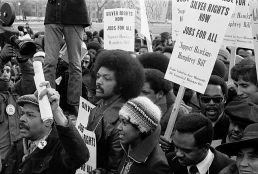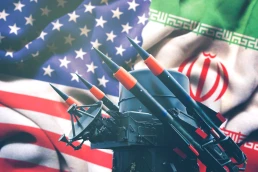By David Swanson, World BEYOND War
The two sides in the war in Ukraine have negotiated a deal to at least reduce the starvation in Africa and elsewhere that may result from the war, by agreeing to a means of exporting some grain.

The same two sides had previously reached agreements on prisoners of war.
The odd thing about this — although it happens in every war — is that each of the two sides has negotiated with what it characterizes as irrational monsters on the other side with whom no negotiations are possible.
There’s rarely been a war in recent centuries in which each side didn’t claim to simply have no partner for negotiations and to be waging all-out war against a monster, while simultaneously negotiating agreements on prisoners of war and adhering to various agreed-upon restrictions on types of weapons and atrocities.
You may want to sit down for this: yes, I have heard the name Hitler. His government negotiated with the WWII allies on prisoners of war and other matters, even while the U.S. and British governments were telling peace activists that negotiating the evacuation of Jews and other targets of Nazi genocide would be impossible.
British Foreign Secretary Anthony Eden met on March 27, 1943, in Washington, D.C., with Rabbi Stephen Wise and Joseph M. Proskauer, a prominent attorney and former New York State Supreme Court Justice who was then serving as President of the American Jewish Committee. Wise and Proskauer proposed approaching Hitler to evacuate the Jews. Eden dismissed the idea as “fantastically impossible.” But the very same day, according to the U.S. State Department, Eden told Secretary of State Cordell Hull something different:
“Hull raised the question of the 60 or 70 thousand Jews that are in Bulgaria and are threatened with extermination unless we could get them out and, very urgently, pressed Eden for an answer to the problem. Eden replied that the whole problem of the Jews in Europe is very difficult and that we should move very cautiously about offering to take all Jews out of a country like Bulgaria. If we do that, then the Jews of the world will be wanting us to make similar offers in Poland and Germany. Hitler might well take us up on any such offer and there simply are not enough ships and means of transportation in the world to handle them.”
Churchill agreed. “Even were we to obtain permission to withdraw all the Jews,” he wrote in reply to one pleading letter, “transport alone presents a problem which will be difficult of solution.” Not enough shipping and transport? At the battle of Dunkirk, the British had evacuated nearly 340,000 men in just nine days. The U.S. Air Force had many thousands of new planes. During even a brief armistice, the U.S. and British could have airlifted and transported huge numbers of refugees to safety.
Not everyone was too busy fighting a war. Particularly from late 1942 on, many in the United States and Britain demanded that something be done. On March 23, 1943, the Archbishop of Canterbury pleaded with the House of Lords to assist the Jews of Europe. So, the British government proposed to the U.S. government another public conference at which to discuss what might be done to evacuate Jews from neutral nations. But the British Foreign Office feared that the Nazis might cooperate in such plans despite never being asked to, writing: “There is a possibility that the Germans or their satellites may change over from the policy of extermination to one of extrusion, and aim as they did before the war at embarrassing other countries by flooding them with alien immigrants.”
The concern here was not with saving lives so much as with avoiding the embarrassment and inconvenience of saving lives. And the inability to negotiate something useful and humanitarian with the opposing monster was no more real than the ability of Ukraine or Russia to negotiate on grain with opposing monsters.
I really don’t care whether those who wage wars are called monsters or not. But well-meaning people should stop falling for the pretense that they cannot be negotiated with. The reason that Ukraine and Russia are negotiating on prisoners and grain but not on peace is that at least one of them — but I think it’s pretty clearly both — do not want peace. It is quite indisputably not because they cannot possibly negotiate.
Recent Posts
Elite Depravity in Imperial Decline, A Zero Hour Conversation With Richard Wolff
February 20, 2026
Take Action Now “The system self-selects for psychopathy… the most sociopathically obsessive competitor and accumulator of personal power and…
Economics of Health For All: The Plan to Put Health at the Heart of the Global Economy
February 20, 2026
Take Action Now At the World Health Assembly in May, member states may endorse an unprecedented strategy declaring that health is not a cost – but…
The Left Owes a Lot to Jesse Jackson
February 19, 2026
Take Action Now As a movement builder, spokesperson, and candidate for the presidency, Jesse Jackson’s accomplishments were massive. He was one of…
Trita Parsi Warns U.S. & Iran Have Incentives to Escalate Conflict
February 19, 2026
Take Action Now “We have a very dangerous situation, because both sides actually believe that a short, intense war may improve their…




